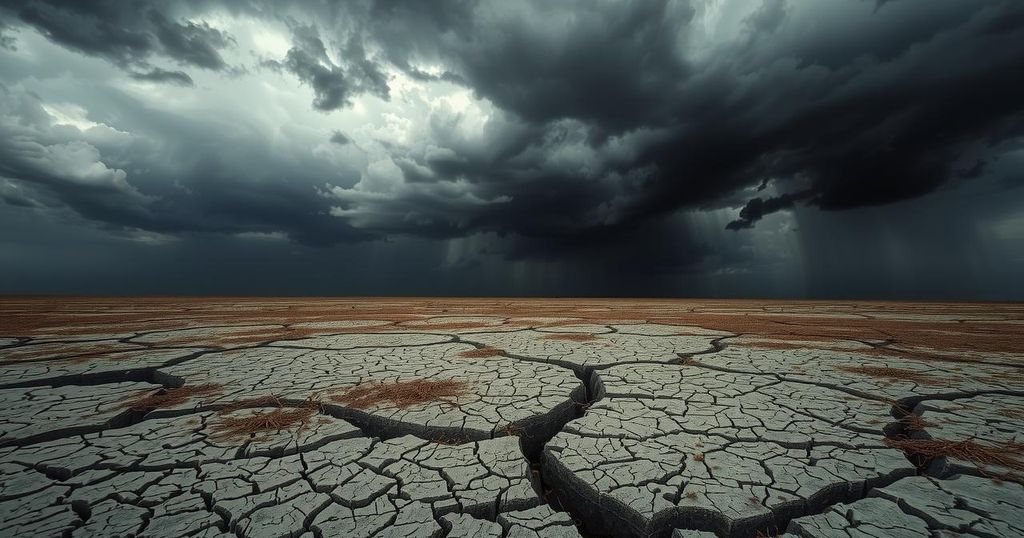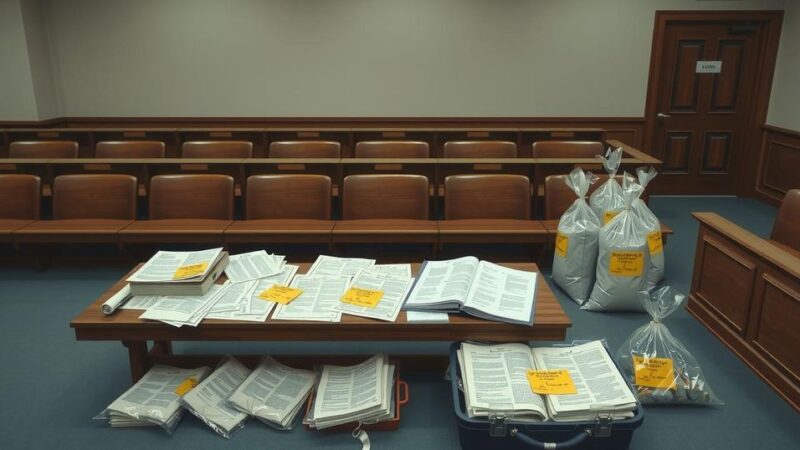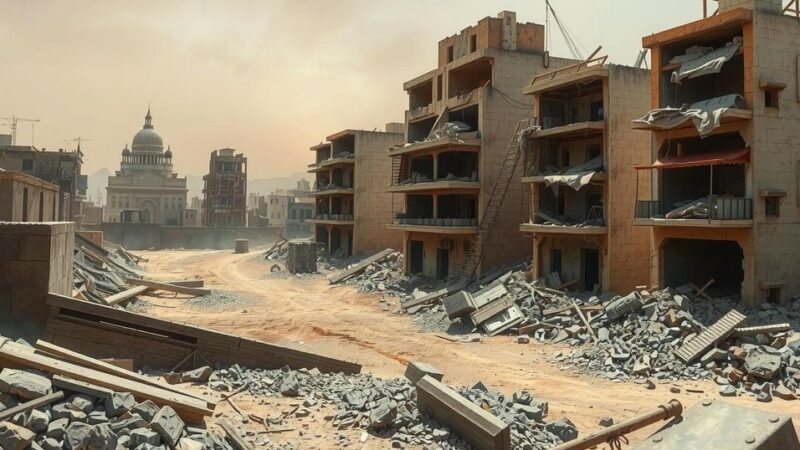South Sudan faces the threat of renewed conflict as tensions rise between President Salva Kiir and First Vice President Riek Machar following militia violence. The unsteady peace established in 2018 is in jeopardy amid the impact of the Sudanese civil war. Regional interventions are critical to prevent escalation and restore stability.
South Sudan stands on the brink of renewed conflict and political instability, particularly following a violent incident on March 4, where a Nuer militia associated with Riek Machar, the nation’s First Vice President, seized an army base in Nasir. Machar has publicly accused President Salva Kiir’s forces of initiating attacks against his loyalists in Ulang County on February 25. The tension in the capital Juba has escalated, with Kiir detaining several of Machar’s allies, raising concerns about the fragile unity government formed under a 2018 peace deal intended to end a previous civil war.
The fragile agreement established between Kiir and Machar to end the civil war has long been under strain. Although it has prevented large-scale conflict, South Sudan continues to experience pervasive local violence, often unconnected to the Kiir-Machar rivalry. The ongoing civil war in neighboring Sudan has further destabilized this precarious situation. Since the fighting erupted in Sudan in April 2023, South Sudan’s government has faced setbacks, including a significant loss of state revenues due to the disruption of its oil pipeline during conflict, which has severely impacted Kiir’s capacity to maintain his regime.
The crisis has complicated Kiir’s relationships with both General Abdel Fattah al-Burhan, commander of the Sudanese military, and General Mohammed Hamdan Dagalo, leader of the RSF. Initially close to Burhan due to proximity to oil resources, Kiir has found it increasingly challenging to manage diplomatic negotiations between these two rival factions. Allegations suggest the RSF may have intentionally neglected pipeline maintenance to weaken Kiir’s position economically, compelling him to negotiate to restore oil flow, thus exposing the intricacies of regional power dynamics.
These deteriorating relations have led to growing concerns regarding escalating hostilities, particularly in Upper Nile, which could represent the first significant spillover from Sudan’s conflict. The longstanding exploitative history of the Sudanese military regarding South Sudan’s ethnic divisions, notably between the Dinka and Nuer groups, has reignited fears. Many believe the Sudanese military may be reestablishing connections with Nuer militias, fostering further unrest.
Violent increases are anticipated, particularly with the possibility of Nuer militias targeting Malakal, a pivotal city in Upper Nile. A confrontation there could have dire consequences, triggering communal violence that might engulf South Sudan more broadly. The precarious security landscape complicates Machar’s influence over militia factions, as shifting local alliances could lead to a rapid escalation of conflict.
While the immediate focus is in Upper Nile, tensions simmer throughout South Sudan. In Juba, Machar is primarily secured by Kiir’s forces, a holdover from the 2018 peace accord aimed at preventing a resurgence of violence. Recent developments, including the death of Major General Majur Dak, a Dinka commander, have heightened fears of retaliation against Nuer in the capital, further complicating the already delicate political atmosphere.
President Kiir, having recently sacked high-profile officials, may use the current strife to rally support from the Dinka community amid pervasive speculation about his health and succession struggles. This raises concerns regarding the possibility of a regime collapse, which could lead to catastrophic humanitarian consequences and an expansion of regional conflict into South Sudan.
Preventing a return to all-out war is imperative. Significant pressures exist for Kiir and Machar to maintain their power despite rampant governmental failures. Urgent regional interventions are necessary to mitigate tensions. Diplomacy by leaders such as Kenyan President William Ruto and South African President Cyril Ramaphosa, alongside the UN’s readiness to respond to potential ethnic violence, could be pivotal in averting disaster. Efforts must be initiated swiftly, as South Sudan rapidly approaches a potentially devastating climax.
In summary, South Sudan stands at a critical juncture as renewed conflict looms due to escalating political tensions and the ramifications of the ongoing civil war in Sudan. The fragile peace established by the 2018 agreement risks dissolution, which could unleash significant violence and humanitarian crises. The involvement of regional leaders and international organizations in high-level diplomacy is now essential to avert catastrophe and foster stability in the region.
Original Source: www.pmldaily.com






